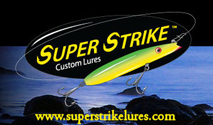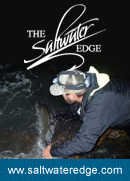Article by Surfcaster’s Journal Blog reader Jason Gribschaw
Obviously any guest opinions expressed here are their own
…we thought you’d enjoy it
What Are We Doing To Our Fisheries?
By Jason Gribschaw
We all know I know next to nothing, if that, about fresh water fishing, but this video moved me.
At one point a Native American mentioned stories of being able to walk across the backs of the salmon, being able to hear the salmon coming and how things have changed.
http://www.fishingfury.com/20101220/the-greatest-migration/
Now I am always skeptical at the figures, but it is still shocking that these fish could be at .08% of what they were not that long ago. That got me thinking about our own fisheries. Having learned a great deal about the striped bass, I wonder how low our stocks are.
Some say striped bass stocks are high, others say they are low. I guess it all boils down to the all mighty dollar to make a stand. As a kid everything was hard to come by. The work put in to catch bait, go fishing, clamming and crabbing somehow necessitated putting food on the table. We didn’t do it because we were poor, we did it because it was passed down from my grandfather to grandson and the little time shared was priceless.
The stories my grandfather told were not as historic as the Native Americans, but they were of good fishing in bad times. Form living in Philadelphia as an immigrant family, joining the forestry, and finally settling back in NY he had photos of lots of fish (if only I knew where those pictures are today).
Go further back in time to our colonial days and the stories were even better. The pilgrims feasted on striped bass. The fish was so plentiful that it is said you could walk across the Chesapeake on their backs. Some of this makes me wonder. Are all fisherman tellers of tall tales or how badly have we sacred the grounds we live on.
When I was young and fishing with my grandfather in the summers, I would come home and not know anyone who fished. Now it seems as though everyone fishes the web and cashes in when the fish are in range. I had never heard of an internet fishing forum or even looked for internet reports until 2006. I guess I just never looked for them. My fishing was relatively local to the Brigantine, NJ waters and my reports came from my grandfather, the next door neighbor down the shore. Heck I had passed a bait and tackle shop every time I entered the island and had never gone in. We use the gear my grandfather had and when it broke we fixed it.
Having discovered an online fishing would I have been exposed to vast amounts of information. My fishing grounds expanded and friendships were formed. The places I used to fish, still often bring in my best summer flounder, but outside of that I hardly spend any time in brigantine due to shortened flounder seasons and much has changed.
With all the talk about how much fishermen are killing the fishery, I beg to differ. I feel that the decline of striped bass is not due to over fishing and more a result of population growth many miles away from our coastal waters as well as climate change. Now I don’t have the knowledge or data to prove, but I do have my theories.
The salmon have dams to contend with, I am sure we have plugged up some waterways, but I don’t think that is the biggest issue. What we have done to the three major spawning grounds is horrifying and probably should be examined more closely. The Chesapeake bay/ Susquehanna River, Delaware Bay/ River and Raritan Bay/ Hudson River have simply taken a beating most noteworthy the Chesapeake Bay and watershed.
In the spring there is/was an amazing fishery in the upper Chesapeake Bay. A large percentage of the striped bass stock makes it way up in to the Susquehanna River to spawn, or at least that used to be the case. This area is either closed to targeting striped bass or is C&R for a period of time.
One of the problems with the YOY, is that the bay is dying. It is dying for multiple reasons, all having to do with humans. PA and MD farmers have allowed there runoff to enter the rivers and make their way into the bay. The rapid increase in housing and golf courses has also added to drainage issues. If the farms were not enough, now we have developments and country clubs messing with the natural grade which has cased tons of sediment to make its way to the bay.
In the spring we get tons of rain that all feeds into the bay. This rain washes all the fertilizer, pesticides and loose soil for most of March, and all of April and May. It just so happens that as this sediment is entering the bay, striped bass are spawning. The eggs are naturally buoyant, until particulate attaches to them sending them to the bottom to be covered in silt.
I do not know the extent that pesticides and fertilizer do damage to the water system, but I have to believe that if they can fertilize plants above ground then why not those below the water. It sound like a good thing, but those plants use up a good majority of oxygen, something fish need. With the increasing water temps and decreasing O2 levels the bays become a dead zone to all sea life except plants, and even they die off when they choke themselves out.
All the algae, plankton that once filled the bay is now out of control and killing the bay. The only hope the bay has is the oysters and the bunker. The oysters are choked out by overgrowth in plant life, receding high tide lines and silt leaving us with the bunker to keep the bays clean.
It is good things that bunker are so plentiful and have the ability to filter so much water. O wait, we are wiping them out also. I don’t think I need to go into that, just do a search and you will find out more info than I can ever type on the subject.
These are factors that need to be addressed just as much, if not more than the actual harvest of fish. Changing the harvest regulations is only going to speed up or delay the eventual collapse of the fishery. You can count all the people fishing, collect an infinite amount of money and make all the changes you want, but until we start to improve the habitat the fish are going to suffer.
If I am on to something, I hope my ramblings find their way onto the desk of someone who has the power to make change.
Jason Gribschaw












Great read, I am thinking you are
↓so right
That’s the big question….whose desk has the power to make the change. People we “think” have the power often do not, and those who actually do have the power hide and cower at the thought of giving up something in order to “do the right thing” . This is unfortunately how our world works these days. No one with a position of true authority has the wherewithal to step up, do the fight thing, and burn plenty of political, financial, and personal bridges along the way….
↓The almighty $ wins again….
You’ve raised some interesting point,Z, and clearly the problems facing the stripped bass are indeed complex. Despite the complexity we’ve to start somewhere to help improve the stock, not just maintain the status quo. Interestingly, according to what I read days ago the salmon stock in the northwest is rebounding.
↓I did not write this….Jason did
↓Jason thank you for this letter and it will end up making a change. Recreational fisherman need to stand up for our given right to fish. The best problem is we our mot united…..what I am trying to say is every recreational fishermen(no matter what you fish for like trout or stripbass) need to stand to gather and spread the word to make changes…..Thank you Z because you spread the word on this kind of stuff thank you
↓well put jason ,you put a diferent thought process into what im used too. im fellow brigantiner too. miss those beaches we moved out in 78 the castle was still there, custard corner oh yea i remember before casinos took over. great town to grow up in. what was that tackle shop ?jack blades?
↓Very good article.
I agree that there are many varied challenges that the striped bass are facing and it’s not simply an issue of over fishing.
↓A valid concern from truly concerned fishermen, but one that will NEVER get the proper resolve.
The numbers can and may always be manipulated in ways to prove or disprove what government agencies, whether locally or nationwide need to prove in order to facilitate THEIR own needs or desires. We are truly at their mercy.
Mankind as a whole will continue to reap more than needed causing continuous peril to the earth’s no-longer unlimited resources. Although it’s our primary focus, it’s not just “fishing” related. The internet has assisted in bringing many issues to the forefront. It has opened the eyes of many. I truly believe that it’s too late and in continuing with my pessimism, fear for my children’s, children’s children…I will not see it in my life-time, but things will continue to worsen. So much so, that the surf-bound fisherman will be taking more pictures of nature, than of caught, kept or released fish.
I apologize for my negative comments as I truly wish I felt differently. However, I do not see a “light” at the end of this slowly, downward, spiraling “tunnel”. I do believe in regulations and abide by them…but at the same time, do not believe that recreational fishermen add up to 3% percent of what is causing the problems with our stocks, and No, I do not have credible data to prove anything…3% is my guesstimate based on my limited knowledge.
If mankind ate only from the sea, what they were able to catch themselves, and did not catch for profit, we would not have these issues. Sure, I don’t see a problem in trading a few pounds of fish for a couple of gallons of milk, (the way it was done many moons ago). Trade for what you need, and not for what you want.
…somebody stick a gaff in me, I need to wake up.
Thanks for the chance to voice opinion Zeno & SJ.crew
↓I apologize for all the composition errors as this was an unedited submission.
A thank you once again goes out to the Surfcasters Journal Crew and all subscribe.
Beside the video linked the other motivating factor in writing the article came from reading all the complaints about over fishing without any consideration to other factors.
Our individual efforts may seem minuscule, but collectively our numbers have impact. Before you call green thumb, or spread fertilizer on your lawn this spring take a second to think about where it ends up after the first rain.
↓